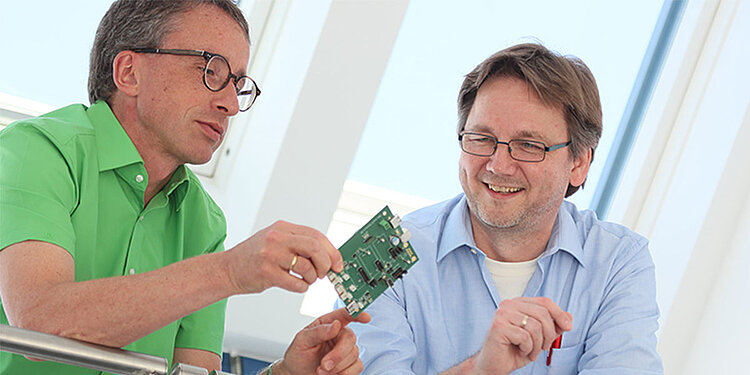Scope for creativity Contribute ideas, take responsibility
What is it about?
We don't just talk. We do. Instead of tough coordination rounds or hierarchical behavior, we encourage people to get things done. In other words, we want people who know what they want and what they can do. They see challenges as an opportunity to contribute their knowledge and experience. We give our employees a lot of creative freedom and a lot of support. In return, we want professionalism, a sense of responsibility, curiosity, a desire for further development and, last but not least, agility. Because if a mistake happens (which is not a bad thing, we see ourselves as a learning organization), then we adapt our actions. So, we also change course sometimes—if it makes sense and leads to better results. Those who cling ironclad to structures, look for faults in others or preach "we've always done it that way" will probably not be satisfied with us. Quite simply, because our work brings with it a certain dynamism that is always goal-oriented. Instead of focusing on problems, we want to direct our energy towards solutions. And the best solutions, we are convinced, are achieved as a team. In this way, we use the creative leeway not only for our own benefit, but for the benefit of the team and the greater whole.

What do I get out of it?
- You have a lot of professional freedom, because we trust in the expertise of each individual.
- Anyone who wants to actively contribute is in the right place with us. No one is a number—after all, we are not a large corporation either, but rather a strong medium-sized company where the individual contribution is seen and valued.
- Decisions are made quickly at our company. That means we trust in competence. But it also means that employees take responsibility for their actions.
- People are allowed to make mistakes, but they should learn from them. Just as we all learn from mistakes—even from those made by colleagues—in order to become better and better.
- Everyone can and should contribute ideas and wishes—even if they seem somewhat unconventional at first glance. Rather, we try to find a good solution for everything and also to be innovative.
- Presenting an idea is about the proposal, not about following a defined process. Unlike larger companies that have formal and lengthy decision-making processes (planning, review, decision), we focus on understanding each proposed solution. That's why even with more complex issues, a decision is made within days or weeks, not months.



